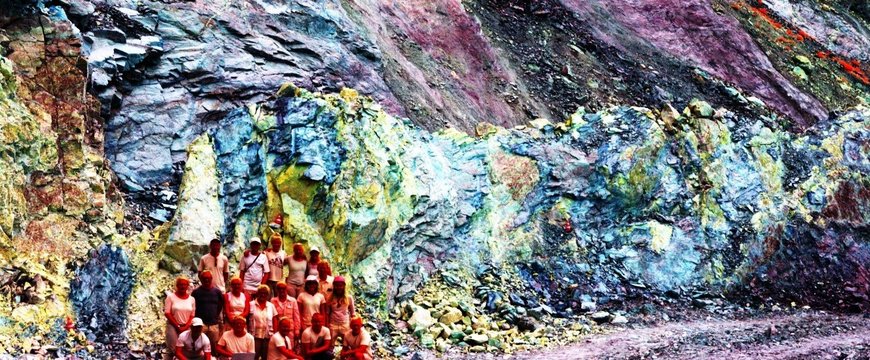Lightweight Integrated Ground and Airborne Hyperspectral Topological Solution - LIGHTS

Funding by: EU-ERAMIN-2 Verbundprojekt. Sub - project between BEAK Consultats GmbH and German Research Centre for Geosciences via BMBF
Funding ID: 033RU002A
Project executing or management agency: EU-ERAMIN-2 joint project; sub-project : PTJ Berlin
Funding period: 01.05.2018 – 31.12.2021
Project partner: Beak Consultants GmbH Freiberg I Faculdade de Ciências da Universidade do Porto I GeoForschungsZentrum I Université Claude Bernard de Lyon I Université de Lorraine (Project Leader)
LIGHTS (Lightweight Integrated Ground and Airborne Hyperspectral Topological Solution) is a research project funded by national research agencies under the EU H2020 ERAMIN-2 network. Lights partners are: Beak Consultants GmbH, Freiberg, Germany, Faculdade de Ciências da Universidade do Porto, Portugal – Dep. of Geosciences, Environment and Spatial Planning, GeoForschungsZentrum, Potsdam, Germany, Université Claude Bernard de Lyon, France – Laboratoire de Géologie de Lyon, Université de Lorraine (Project Leader), Nancy, France – Laboratoire GeoRessources.
LIGHTS aims at designing a new exploration process at the target scale. The objective is to perform an airborne and a ground survey in a single field survey to test the fertility of the outcropping target.
Rechargeable lithium-ion batteries have become indispensable for consumer electronics and for powering electric cars. However, there are currently no available tools or methods to detect lithium in the actual geological context by remote sensing and its feasibility is poorly understood.
For this end, we are introducing the Lightweight Integrated Ground and Airborne Hyperspectral Topological Solution (LIGHTS) that comprises cutting edge drone, camera and software technology. It will be firstly applied to European Li-deposits.
The LIGHTS project brings together world-leading industrial and research organizations to develop new methods and tools for drone-based lithium exploration. The general objectives of the project are:
- To develop a software for easy and fast detection of lithium-host minerals combining drone-borne remote sensing data and field observations.
- To understand how pegmatitic Li-deposits are formed. This is critical to establish how remote sensing and field observations can be used to unveil lithium deposits.
We foresee that the tools developed during the project have the potential to boost the mineral exploration industry in general, resulting in increasing exploration activities in Europe and beyond, to a variety of different ore deposits and geological environments around the globe.




